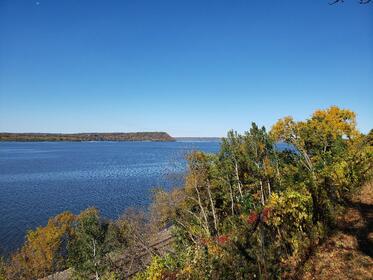Looking in more detail at the full published study, the researchers found that "Overall, >80% of the Basin total runoff and N leaching was from the rising extreme precipitation areas. Basin-wide, extreme precipitation events occurred only 8.6 days year−1 (2.4% of 365 days) on average, but they contributed to approximately one-third of annual total water yields and N yields. This is likely a conservative estimate of the contribution of extreme precipitation events as we only focus on extreme precipitation days without consideration of post-event legacy effects."
This new understanding of the role of extreme precipitation can inform how changes can be made in fertilizer and manure application to reduce the loss of nutrients.
0 Comments
Leave a Reply. |
| LWV Upper Mississippi River Region | UMRR blog |

 RSS Feed
RSS Feed